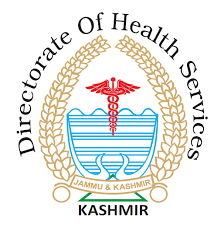Fazil
Srinagar, Aug 19 (NVI): With the successful culmination of Shri Amarnath Ji Yatra 2024, Directorate of Health Services Kashmir recorded over 2 lakh OPD patients along both Pahalgam and Baltal axis.
Through meticulous planning, skill based targeted trainings and the deployment of advanced medical facilities, the Directorate of Health Services, Kashmir has significantly reduced the mortality rate also. This accomplishment underscores department’s commitment in ensuring the safety and well-being of all pilgrims.
Dr Jehangir Bakshi
Director Health Services, Kashmir (DHSK) Dr Jehangir Bakshi on this occasion today took a review with Yatra Unit DHSK and was briefed about the summary, cumulative workdone and significant milestones achieved.
Dr Syed Abid Rasheed Shah
On this occasion DHSK emphasised that under the able guidance of Secretary Health & Medical Education Department, UT J&K Dr Syed Abid Rasheed Shah and overall support from UT & Central Administration, Directorate of Health Services, Kashmir played a significant role in providing efficient health care services to the pilgrims.
He also complimented the Health Care Management and man power deployed from outside and within the UT for providing health care services during the yatra period.
The patients seen by the health centres included yatris, service providers, personnel from another departments, security personnel and others.
More than 17,000 people were recorded under short stay admissions which mainly availed supplemental oxygen therapy due to symptoms of High Altitude Disease along with basic day care medical services.
Around 3807 patients were treated for injuries.26,918 patients underwent various diagnostic tests which included Lab. Tests, X-ray, ECG, USGs etc.
There has been considerable decrease in cardiac events as the directorate has been augmenting the Human Resource, Drugs and Logistics with trained staff. In addition to this early intervention of managing patients of high altitude illness with timely admission at Base Camp Hospitals equipped with Oxygen Manifold System and all necessary advanced equipments and medications has contributed to deliverance of effective health care.
In addition to it availability of mobile on track pony ambulances, visual screening at the entry gates from both Axis, IEC efforts by the Directorate of Health Services, Kashmir was put in place for ensuring safety of the pilgrims.
It is pertinent to mention that the Directorate of Health Services, Kashmir had established 55 medical stations along the pilgrimage route, comprising 06 Base Hospitals (BHs) which included 100 Beded Hospital at Baltal and Chandanwari, Medical Aid Centres (MACs), Emergency Aid Centres (EACs) to ensure comprehensive healthcare support.
Twenty-six strategically placed oxygen booths along the route ensured continuous access to supplemental oxygen for pilgrims, particularly at high-altitude locations All Base hospitals namely Baltal, Holy Cave, Lower Holy Cave, Panjtarni, Sheshnag, and Chandanwari had been equipped with advanced ICU facilities.
In addition advance equipments like Automatic Cardiac Pulmonary Resuscitation Machines (CPRs), Automatic External Defibrillators (AEDs), ventilators, infusion pumps, beds, Portable X-Ray Machines and other essential medical equipments were operationalized. Strategic placement of facilities such as Liquid Oxygen tanks, Bulk Oxygen Cylinders, Medium Oxygen Cylinders and Oxygen Concentrators at various base hospitals ensured adequate oxygen availability.
The bed strength along the pilgrimage route had been significantly increased 316 beds. This expansion ensured that pilgrims had access to adequate medical care. Thirteen dedicated ambulances, including critical care units, along with 25 standby ambulances ensured swift emergency response services throughout the pilgrimage route.
All medical personnel deployed for the yatra were trained in high altitude emergency medicine to proficiently manage altitude-related health issues and emergencies.
Telemedicine units services were reinstated to facilitate remote medical consultation and support, leveraging technology to enhance healthcare accessibility and efficiency. A total of 1415 staff members were deployed for Yatra duties in three shifts including 173 Specialists (cardiologists, respiratory physicians, physicians, Orthopaedician, general surgeons), 244 Medical Officers & 998 Paramedical staff.
Out of the total requirement 754 staff were deputed from Directorate and 661 medical staff were deputed by Ministry of Health & Family Welfare, Government of India.(News Vibes of India)







